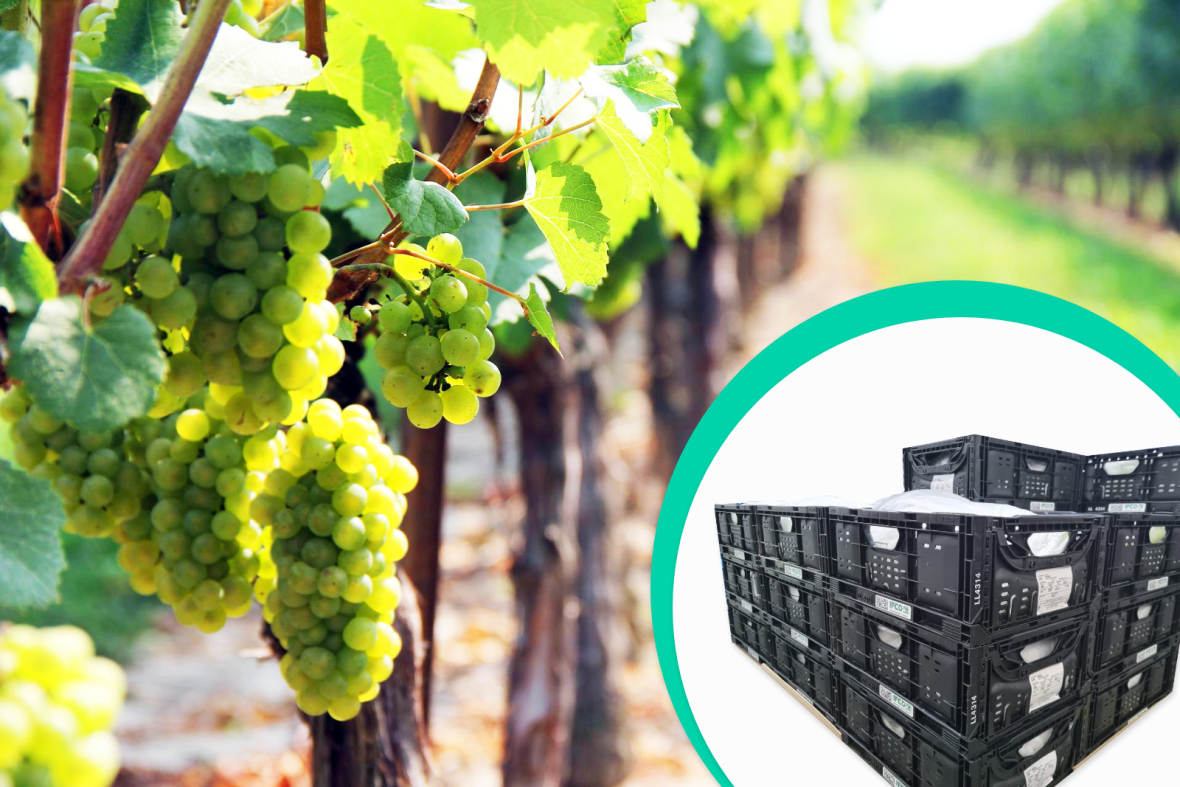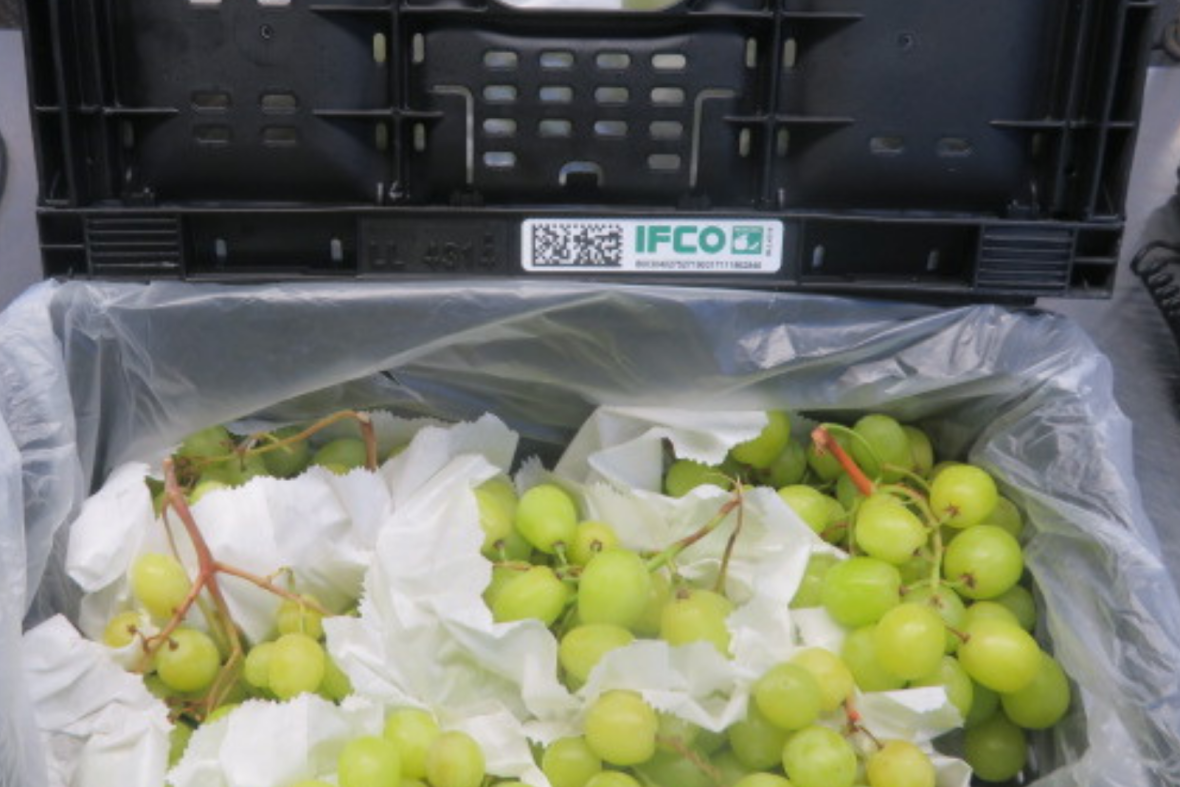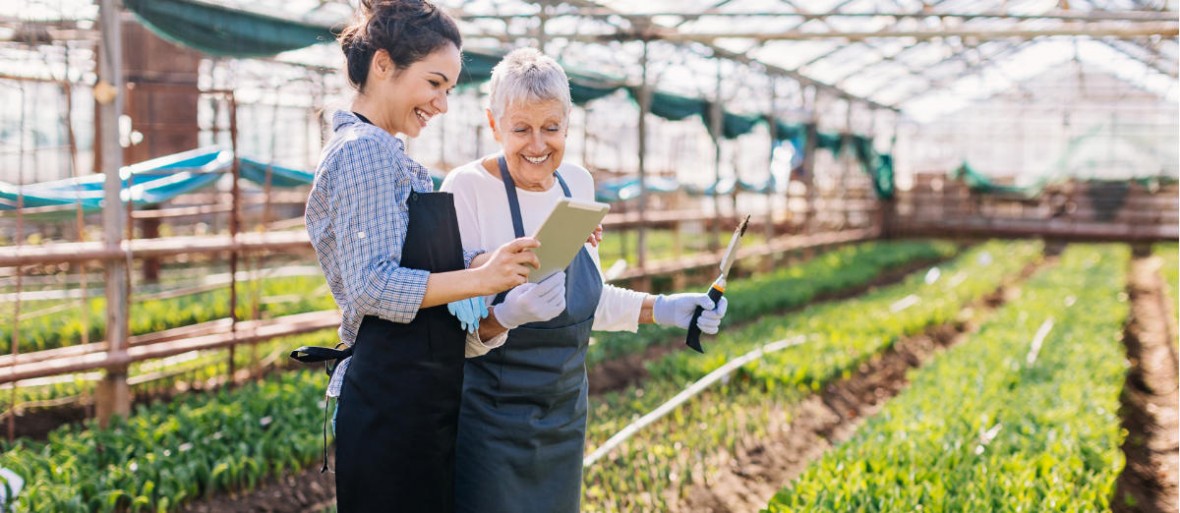Eco-conscious consumers are hungry for organic fruit and vegetables. The increased appetite is welcome, however, this sector faces unique supply-chain challenges to meet demand. For almost 25 years, Edward Out, Managing Director and Co-Founder of OTC Organics B.V. in the Netherlands, has been tackling the issues in a holistic way – and with a conscience. Success comes with innovative solutions and from being picky about partners, producers and sustainable business practices.

With his eye for the bigger picture and a passion for sustainability, Edward Out has always done things differently. After almost 25 years of working in organic trade and farming, he understands the need to tackle sustainability in a holistic way with innovative solutions. He also values long-term partnerships that get the right results.
"From the outset, we decided to connect with producers and share responsibility for the entire supply chain," explains Out, who started out in the business at a time when organic produce did not have the broad acceptance or cool vibe it has today. As the Managing Director and Co-Founder of OTC Organics B.V. in the Netherlands, Out now heads up the leading European importer of organic fresh fruit and vegetables. Moreover, his company acts as a strategic partner for international suppliers and customers.
When Out talks about his work, he shows a passion for his industry and an unwavering focus on achieving long-term sustainability. It’s an innovative mindset that helps define the strong partnership with IFCO and the choices the company ultimately makes. It’s also captured in the company’s pithy slogan: "Organic experts with a conscience!".
Having a conscience does make business challenging, but also more rewarding. Out and his team always look at the long-term impacts of their decisions. The similarities the company has with IFCO really stand out in this respect. They too consider the environment and the business, but also their grower partners and customers. What’s more, much like IFCO, everything they do has to make the whole supply chain for overseas organic produce more sustainable.
For many years now, OTC Organics has been teaming up with growers around the globe to supply customers in Europe with high-quality, fresh organic produce. This includes citrus fruit from Mexico and South Africa, limes from Colombia and table grapes from South Africa. As Out makes clear, irrespective of the location, destination or type of fruit or vegetable, his team provides specialized support to growers and retailers.
For instance, in-house agronomists help growers identify how to adapt their farming practices to get the necessary organic certifications for their target markets, including the European Union and the United States. It’s an innovative approach that cements long-term partnerships and improves the sustainability of everyone’s operations. And that’s just one example.
"Ultimately, we are all in the same boat," adds Out. "We need each other to reach our sustainability goals, especially given the harsh environment in which we are currently having to work." To ensure those goals are achieved, Out was keen to bring IFCO and their innovative solutions on board to support the timely switch to more sustainable packaging.

“From the outset, we decided to connect with producers and share responsibility for the entire supply chain”
A key challenge you have with overseas organic produce is finding a packaging solution that covers all the bases. You need a solution that adequately protects the delicate produce along the whole journey – by ship, rail or truck – without having a negative impact on the environment, on the growers or at the retailers. Reducing the need for single-use packaging is therefore a vital part of Out’s sustainable solution for the organic sector.
It started a few years back by replacing single-use plastic with more sustainable customer units and is now focused on transport packaging. That’s why the priority is to make greater use of IFCO reusable packaging containers (RPCs) and SmartCycle™ pooling system instead of one-way containers.
To this end, OTC Organics ran a real-world trial using IFCO RPCs – the IFCO Black Lift Lock – to transport organic table grapes from the grower, Orex Export (Pty), in South Africa to customers in Europe. The innovative design of the IFCO crates allows the company to use the same reusable type of packaging throughout the journey, from the country of origin directly to the shelves of the supermarkets. The organic grapes are safely packed in the IFCO RPCs until the consumer pops them into their shopping basket. And they feel so fresh it’s like you’re picking them straight off the vine!

"As organic growers do not have the luxury of high production yields common to conventional produce, any damage or loss during harvesting processes or transit can be devastating for the growers," says Out. "The IFCO RPCs are very protective from physical damage. They protect from damage from forklift trucks, for instance."
It’s no secret that high temperatures and low humidity dehydrate grape stems, which make the produce less attractive to retailers and consumers. When the South African grapes are safely cradled in the same IFCO RPCs throughout their long journey, you get better protection from dehydration. The IFCO containers do not absorb humidity, unlike many types of single-use packaging, so your fruit doesn’t dry out.
From the vineyard to cold storage and through to the retailers, the organic grapes are kept in the same crate. So, your grapes are well protected from moisture loss right up to the Point of Sale.
Ultimately, this innovative approach also reduces the need to handle the produce. As a result of IFCO’s one-touch system, you reduce labor and handling costs. You also cut down on product damage and food waste. Studies show that when you transport fresh products in IFCO RPCs you can reduce food damage in your supply chain by up to 96% that means a higher percentage of your products reach consumers.
How do IFCO crates reduce produce damage? You’ll have to go back to the vineyard to find out. More specifically, you need to understand the pre-cooling processes and the specific challenges of maintaining the cold chain along the entire journey. It’s unique for the delicate organic grapes.
If you want to reduce produce damage and have a longer shelf life, as with any fresh vegetable or fruit, you need to get the field heat out as fast as possible after harvesting. Grapes immediately start to deteriorate the moment you pick them off the vine. When you get grapes to a cooler temperature faster, you can maintain their freshness and preserve grape quality for longer. Basically, you want the most efficient pre-cooling process possible, especially when you’re harvesting valuable and sensitive organic grapes.
During the pre-cooling process, cool air is forced through the pallets of pre-packed grapes. With IFCO RPCs, thanks to the unique ventilated design of the reusable containers, the airflow passes more evenly through the stacked pallets. As Out can confidently confirm, you get a more consistent and rapid cooling of the grapes with the vented IFCO crates.
"Given the faster cooling rate with IFCO RPCs, the process is quicker," notes Out. "You save a lot of time and energy during the cooling process." How much? Since introducing IFCO RPCs, Orex Energy (Pty) uses less energy during the pre-cooling process after harvesting the grapes. The IFCO RPCs ensure a 25% quicker forced-air cooling process.
In addition to the above benefits of using IFCO RPCs for organic grapes, Out highlights the following five innovations as key to making the organic supply chain more sustainable. Whether you are a grower or a retailer, the benefits soon add up and you get the essential holistic support you need.
As you no longer need to purchase single-use packaging in advance, you reduce your capital investment. This is something that growers really appreciate, says Out.
The costs of single-use packaging and raw materials are volatile and fluctuate considerably. Not with IFCO RPCs. The costs are more stable, and you have better cost transparency.
Single-use packaging leaves behind considerable waste for growers and for retailers. That not only impacts the environment but also your workload. Waste needs to be dealt with. As the IFCO RPCs are reused and recycled, you have zero waste on the vineyard and in the stores. Overall, compared to single-use alternatives, IFCO RPCs produce 86% less solid waste.
Unlike single-use packaging, IFCO RPCs are designed to be reused up to 120 times and are granulated and used to create new IFCO RPCs at the end of their service life. You reduce your carbon footprint as you are helping to make the most out of our planet’s valuable resources.
Compared with single-use packaging, life-cycle assessments show that you reduce your overall water and energy use with IFCO RPCs. Over their entire service life, these reusable and 100% recyclable crates use up to 80% less water and 64% less energy.
One thing is clear from this deep-dive into the world of organic grapes with OTC Organics: Tackling the CO2-footprint of South African grapes for the European market requires a multi-tiered and innovative approach. As the supply base in the overseas organic market is much smaller, there is a certain co-dependency in this sector. This means decisions are taken in consultation with the growers.
"Throughout, we focus not only on profits, but we play an active role and take responsibility for optimizing the entire supply chain to make it more sustainable," adds Out. "Given the challenging macro environment, we need each other to become more sustainable and to get a grip on the costs," he continues. "We have always taken care to introduce measures to mitigate the risks that are unique to organic produce while ensuring we keep the whole supply chain sustainable." In recent years, those risks have increased.
"Like every supply chain, the organic sector is facing unprecedented challenges, from disrupted shipping lines, volatile transport costs, devastating climate change and, of course, dramatic geopolitical events," says Out. The COVID-19 pandemic has accelerated the impact of many of these issues.
Despite the difficult circumstances, Out remains upbeat, and with good reason. "We have the solutions already," he says. "We just need to implement them more widely and consistently. And IFCO provides the best of them. Using standardized packaging from IFCO is a no-brainer. A broader take-up of IFCO solutions would really make a difference and bring about change volume-wise." Out is determined to set standards for the fresh grocery supply chain. "By making the more sustainable choices from a holistic perspective, we hope others in the supply chain will follow our example," he says. "Essentially, we all need to realize that we have a responsibility to work together to create a sustainable supply chain. Even the consumer. To get everyone on board, we need to communicate the real costs of our food choices."
"For the organic table grapes out of South Africa, the cooperation between OTC Organics, Orex Export Pty and IFCO has an enormous impact," concludes Out. "Together, by combining our innovative approach with innovative solutions, we’re bringing the most sustainable overseas packed organic grapes to our customers in Europe."
Stay up to date
Want the latest fresh food packaging industry knowledge delivered straight to your inbox? Subscribe to our newsletter and get the latest news, trends, articles and more!
